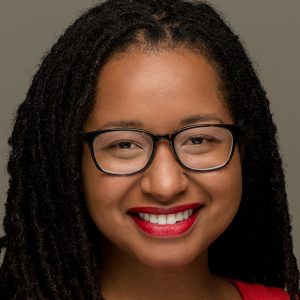Many city leaders in the U.S. make it a priority to build thriving and equitable communities in which all residents have opportunities to build wealth. To accomplish this goal, local leaders must first dismantle programs and policies that may be contributing to economic inequities and make a commitment to center racial equity in municipal policies, practices and procedures. Centering racial equity as a standard practice can set cities up for success when navigating or developing wealth equity strategies. Centering racial equity in policies, practices and procedures means maintaining an intentional focus on the needs and outcomes of those most negatively impacted by racial inequities—both in municipalities and in the country as a whole.
Centering racial equity is a critical component in narrowing the racial wealth divide and is further described in a recently published NLC guide for cities, Municipal Strategies to Narrow the Racial Wealth Divide. The guide lays out a set of key principles that cities should consider when striving to reduce racial wealth inequities while building pathways for economic prosperity for all residents.
Develop a citywide vision for eliminating the racial wealth divide
Embedding efforts to eliminate the racial wealth divide in a city’s overall vision for a more racially equitable future will lead to more sustainable efforts, and long-term strategies that will have broad reaching impacts. Racial wealth inequities, just like racial inequities overall, have their roots in multiple systems that accumulate to create the compounding effects of structural racism. Understanding this reality requires us to focus on historical root causes as well as current policies, practices, and procedures. Casting a vision of a more racially equitable future that includes wealth building for all, can help city leaders and residents alike see themselves as part of a multi-racial inclusive democracy that works for and includes everyone. It must be built on the understanding of interdependence, that if one group is not thriving economically, it will impact the whole city.
Assess municipal policies and practices with a racial equity lens
Gaining an understanding about the impacts of discriminatory policies and programs that have led to racial wealth inequities is an important step, but how cities take action based on what they learn is what matters for meaningful change. To ensure equity in the present and future, cities must apply this lens of critical thinking to existing city programs and policies. Existing municipal policies, programming and protocols may be unintentionally exacerbating racial economic disparities. For some, access to the services or benefits the program provides may be the key barrier, either because of geographical location within the city or other barriers that may be preventing access for certain groups.
Municipal practices can be assessed by using disaggregated data to better understand the impact of those practices on different racial and ethnic groups. In addition to quantitative data, cities can directly engage with BIPOC residents to understand how they experience programs and policies, and what may be barriers to access that data do not reveal.
Benchmark and measure success over time
The use of data and community engagement to inform strategies makes racial wealth divide strategies strong and sustainable. Developing indicators and measures can help cities understand who in communities holds the wealth and who does not. But municipalities should not stop there. They must understand the coexisting factors, such as health inequities, lack of transportation, limited access to childcare—all of which play a significant role in whether or not individuals and families are able to participate in the economy and build wealth. By creating data dashboards and tracking systems it is possible to establish baseline metrics and see changes over time for different groups of people and adjust if one group begins to fall behind.
Implement a feedback loop to ensure continuous improvement
Feedback from stakeholders is necessary both in undertaking new strategies and redesigning programs and policies at the municipal level. Collecting stakeholder feedback from the early stages of strategizing new programs and policies is important in program design. Cities also should create a mechanism to collect feedback from community members at various stages to assess whether the new policies and programs are having the intended impact and are equitable. Using the feedback and data to make mid-course corrections and show residents that city leaders are listening to and acting on that feedback is important to gain buy-in and participation in the feedback process.
These principles, if embraced by city leaders, can serve as a launching pad to successful design and implementation of municipal programs and policies that reduce racial wealth inequities. Racial equity work is critical to the sustainability and growth of strong local government, and of democracy at large. Because democracy in the United States grew out of a history of stolen land and exploited labor, the achievement of the country’s original aspiration, government of the people, by the people, for the people, requires an unrelenting commitment to correcting historical and current policies that have made it nearly virtually impossible for families of color to accumulate familial wealth. It also requires a recognition that while the original intent of policies such as the homesteading act and redlining were to keep indigenous and black people out of the way of white families accumulating wealth, these policies and their modern-day vestiges have harmed many white families as well. City and community leaders working together with residents to address these historical and present-day inequities can begin to craft a new narrative while moving the needle toward narrowing the racial wealth divide.
Learn More
For more information about NLC’s efforts to help cities narrow the racial wealth divide, contact EOFE@nlc.org.





